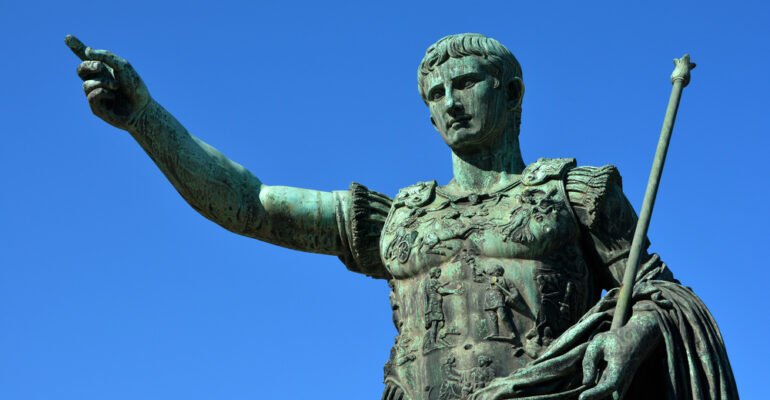Augustus Caesar’s Legacy: Lessons for Mental Well-Being through Leadership and Stability

Augustus Caesar’s Legacy: Lessons for Mental Well-Being through Leadership and Stability
Augustus Caesar[1], the first Roman Emperor, left an enduring legacy marked by political stability and effective governance. While it may seem challenging to directly link ancient figures to modern mental health care, examining Augustus’s leadership principles offers insights into creating stable environments that can positively impact mental well-being.
Stability and Emotional Security:
Augustus’s reign was characterized by political stability, contributing to a sense of emotional security for the Roman citizens. In mental health care, environments marked by stability and predictability can positively influence individuals’ emotional well-being, fostering a sense of safety and calm.
Community Connection and Social Cohesion:
Augustus focused on rebuilding and strengthening Roman society.[2] Mental health care inspired by this perspective recognizes the importance of community connection and social cohesion, offering individuals a supportive network that plays a crucial role in their mental well-being.
Effective Leadership and Mental Resilience:
Augustus’s effective governance aligns with principles of strong leadership, which can contribute to mental resilience within a society.[3] In mental health care, leadership that values transparency, empathy, and effective decision-making can positively impact individuals’ ability to navigate challenges.
Cultural Contributions to Well-Being:
Augustus was a patron of the arts and culture, contributing to the flourishing of Roman literature and architecture. Mental health care that recognizes the importance of cultural contributions in promoting well-being encourages individuals to engage with artistic expressions, fostering a positive and enriching environment.
Promoting Civic Virtue and Personal Growth:
Augustus emphasized civic virtues and personal responsibility. Mental health care inspired by this perspective recognizes the positive impact of promoting virtues such as responsibility, integrity, and civic engagement on individuals’ mental well-being and personal growth.[4]
While the context of ancient Rome differs significantly from modern mental health care, Augustus Caesar’s principles of stability, community connection, effective leadership, cultural contributions, and virtues offer valuable insights. Implementing these principles in contemporary society involves creating environments that prioritize stability, community support, effective leadership, cultural engagement, and personal responsibility—factors that collectively contribute to a conducive atmosphere for mental well-being.
In conclusion, Augustus Caesar’s leadership legacy provides lessons for fostering mental well-being through stability, community support, effective leadership, cultural engagement, and personal responsibility. While adapting these principles to modern mental health care may require nuanced approaches, the core values of stability and community support remain relevant for creating environments that positively influence individuals’ mental well-being.
[1] Firth, John Benjamin. Augustus Caesar and the Organization of the Empire of Rome. GP Putnam’s sons, 1902.
[2] Shotter, David. Augustus Caesar. routledge, 2005.
[3] Zerbey, I. V., and H. Joseph. “The Life and Times of the Other Caesar.” Torch 89.3 (2016).
[4] Jeffries, Kevin P. “The Propaganda of Augustus Caesar; How Peace, Power, and Stability was Achieved During the Age of Augustus.” Senior Seminar: HST. Vol. 499. 2006.






